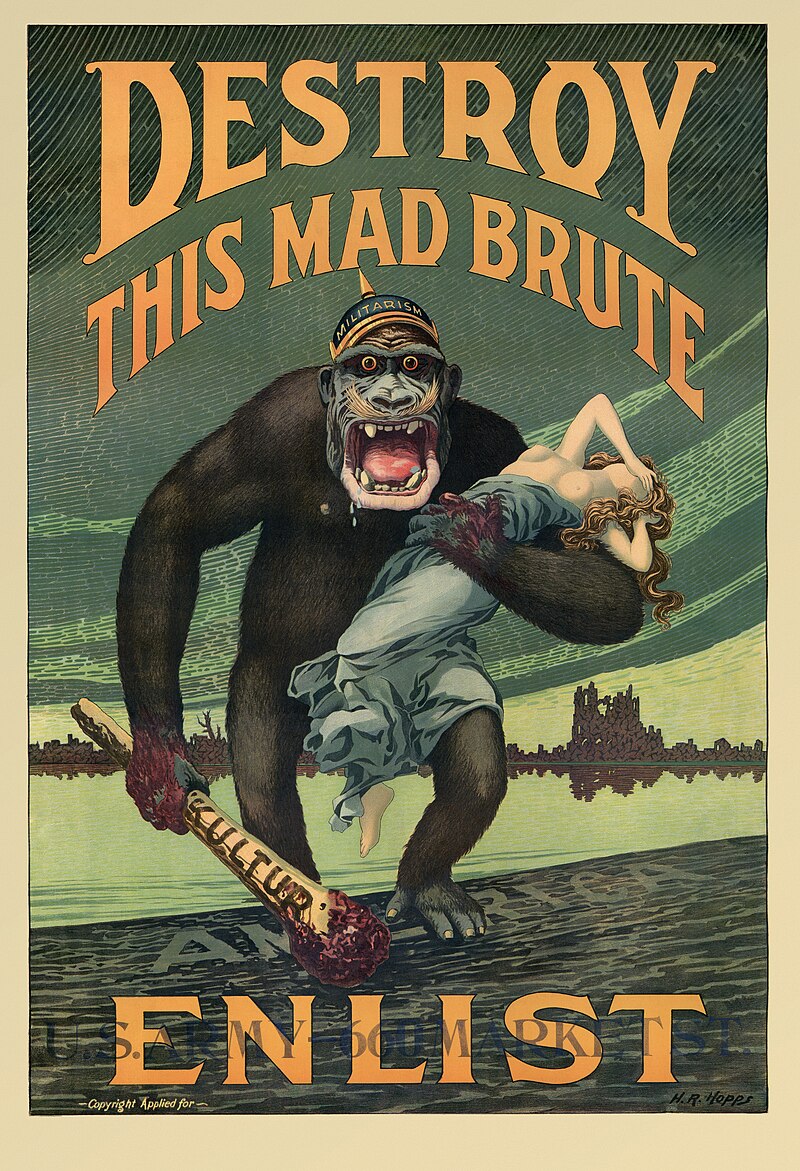Links zum Thema Werbung / Advertisement
Literatur
- Dr. Daniel Kahneman (1934-2024) israelisch-amerikanischer Professor für Psychologie, Kognitionswissenschaftler zu Urteils-
heuristiken und kognitiven Verzerrungen, Nobelpreisträger in Wirtschaft, 2002, Schnelles Denken, langsames Denken, Siedler
Verlag, 23. Auflage 21. Mai 2012
- Peter Bartels, deutscher Chefredakteur der BILD-Zeitung (1989-1992), Autor, BILD – Ex-Chefredakteur enthüllt die Wahrheit über den Niedergang einer einst großen Zeitung, Kopp Verlag, 1. Auflage 25. Februar 2016
- Prof. Dr. Michael Meyen (*1967) deutscher Kommunikations- und Medienwissenschaftler, Autor, Die Propaganda-Matrix. Der Kampf für freie Medien entscheidet über unsere Zukunft, Rubikon, 2. Auflage 20. Juli 2021
- Johannes Menath (*1993) deutscher Chemieingenieur, Mitgründer der Agora-Initiative, Autor, MODERNE PROPAGANDA. 80 Methoden der Meinungslenkung, Verlag zeitgeist Print & Online, 6. Auflage 30. November 2022
↑
Literature (engl.)
- Kenneth Roman (*1930) US American former CEO of advertising agency Ogilvy & Mather Worldwide, author, Joel Raphaelson, US American legendary adman, Writing That Works. How to Communicate Effectively In Business, original publication, 1981, Collins Reference, 3rd revised edition 22. August 2000
- Noam Chomsky (*1928) US American professor emeritus of linguistics, philosopher, cognitive scientist, social activist, author, Edward S. Herman (1925-2017) US American professor emeritus of finance, Wharton School of Business of the University of Pennsylvania, Manufacturing Consent. The Political Economy of the Mass Media, Pantheon Books, New York, 1988, Vintage, paperback issue 20. April 1995
The media uses five propaganda-based filters to support the ruling elites:
1. Ownership for profit,
2. Advertising,
3. Elite complicity,
4. Attacking alternative narratives,
5. Creating diversionary boogie men.
- Jean Kilbourne (*1943) US American feminist cultural theorist, activist, filmmaker, speaker, author, Can't Buy My Love. How Advertising Changes the Way We Think and Feel, Free Press, 2. November 2000
- Jean Kilbourne (*1943) US American feminist social theorist, filmmaker, speaker, author, Diane Levin, Ph.D., US American co-author, So Sexy So Soon. The New Sexualized Childhood, and What Parents Can Do to Protect Their Kids, Ballantine Books,
5. August 2008, paperback issue 21. July 2009
- Gerald Rosen, Ph.D. (1939-2010) US American professor of English literature, educator, novelist, Cold Eye, Warm Heart. A Nove-
list’s Search for Meaning (autobiography), Calm Unity Press, 1. February 2009
- Brian Anse Patrick, Ph.D., US American professor of communictation, University of Toledo, The Ten Commandments of Propa-
ganda, Goatpower Publishing, Kindle e-book, Amazon Digital Services, 7. October 2011
↑
Externe Weblinks
- Artikel Wie die Massen manipuliert und gelenkt werden, präsentiert von dem Blog von Jürgen Fritz, deutscher Polizist, Lehrer, Autor, 23. Februar 2019
- Artikel Putin, ein: "Arschloch", "Idiot", "Penner" – Verbreitet der BR Propaganda oder "Forschungsergebnisse"?, präsentiert von der Publikation sciencefiles.org, 8. März 2022
↑
External web links (engl.)
- Blog article featuring Sharyl Attkisson (*1961) US American investigative correspondent in the Washington bureau for CBS News (1993-2014), journalist, author, CBS News Investigative Journalist Explains How Mainstream Media Brainwashes The Masses, presented by Starship Earth: The Big Picture, 15. November 2015
- Study by British researchers Samantha Bradshaw, Philip N. Howard, Challenging Truth and Trust: A Global Inventory of Orga-
nized Social Media Manipulation, 26 pages, presented by the Computational Propaganda Research Project, Oxford Internet Institute, University of Oxford, 20. July 2018
↑
Audio- und Videolinks
- Videopräsentation von Dr. phil. Daniele Ganser danieleganser.ch (*1972) Schweizer Historiker, Universität St. Gallen, NATO-Kenner, Experte für verdeckte geostrategische Kriegsführung, Energie- und Friedensforscher, Gründer und Leiter des Swiss Insti-
tutes for Peace and Energy Research (SIPER) (*2011), Dr Daniele Ganser. Die Wahrheit. Wie funktioniert Propaganda?, Thun, Schweiz, 7. September 2012, YouTube Film, 14:43 Minuten Dauer, eingestellt 15. Februar 2014
- Audiokommentar von Hans Springstein, deutscher Journalist, Tagesdosis 1.4.2020 – Die Psychologie der Massen, präsen-
tiert von der deutschen Online-Plattform für investigativen Journalismus KenFM, Sendeformat "Tagesdosis", Odysee Film,
22:03 Minuten Dauer, eingestellt 1. April 2020
- Videopräsentation von Dr. phil. Daniele Ganser danieleganser.ch (*1972) Schweizer Historiker, Universität St. Gallen, NATO-Kenner, Experte für verdeckte geostrategische Kriegsführung, Energie- und Friedensforscher, Gründer und Leiter des Swiss Institute for Peace and Energy Research (SIPER) (*2011), Propaganda – Wie unsere Gedanken und Gefühle gelenkt werden, veranstaltet von wissen-ist-relevant.de, YouTube Film, 1:28:49 Minuten Dauer, eingestellt 12. April 2020
- Videovortrag von Prof. Dr. Michael Meyen (*1967) deutscher Kommunikations- und Medienwissenschaftler, Autor, "Zensur 2022" _ Die-Akademie-der-Denker, präsentiert von dem YouTube Infokanal Die-Akademie-der-Denker, Gründer und Inhaber Prof. Maximilian Ruppert, YouTube Film, 41:25 Minute Dauer, eingestellt 13. Dezember 2022
- Zoom Videointerview mit Dr. Jonas Tögel (*1985) deutscher Amerikanist, Propagandaforscher, wissenschaftlicher Mitarbeiter
am Lehrstuhl Pädagogische Psychologie, Regensburg, Dr. Jonas Tögel – Kognitive Kriegsführung, präsentiert von dem deut-
schen alternativen online Fernsehsender NuoFlix / SteinZeit TV, Gastgeber Robert Stein (*1970), YouTube Film, 47:54 Minuten Dauer, eingestellt 7. Januar 2023
- Videovortrag von Johannes Menath (*1993) deutscher Chemieingenieur, deutscher Autor, Johannes Menath: »Die Methoden der Meinungslenkung«, Symposium »Manipulierte Gesellschaft«, Raum Frankfurt am Main, 1. Juli 2023, Veranstalter Demo Für Alle, YouTube Film, 43:46 Minuten Dauer, eingestellt 11. Juli 2023
Dokumentationen
↑
Audio and video links (engl.)
- Video presentation by Michael Tsarion (*1968) Irish macrohistorian, symbolist, sidereal astrologer, mythologist, occultist, "con-
spiracy" researcher, public speaker, author, Age of Manipulation, part 3, presented by Lexxtex 318, YouTube film, 4:06:46 du-
ration, posted 12. June 2012
- Video presentation by Satvinder "Sut" Jhally (*1955) Kenyan-English professor of communication, cultural studies scholar in advertising, media, and consumption, University of Massachusetts, Amherst, Advertising and the End of the World, sponsored
by the American University of Beirut, The Media and Digital Literacy Academy of Beirut, MDLAB 2014, YouTube film, 1:19:19 duration, recorded 13. August 2014, posted 20. August 2014
- Video presentation by Sharyl Attkisson (*1961) US American investigative correspondent in the Washington bureau for CBS News (1993-2014), journalist, author, Astroturf and manipulation of media messages, presented by TEDx Talks Nevada, sponsored by the University of Nevada, YouTube film, minute 3:58 referencing Wikipedia turf wars,10:36 minutes duration,
posted 6. February 2015
Fake grassroots movements (AstroTurf) funded by political, corporate, or other special interests very effectively manipulate and distort media messages.
↑
Audio and video links (engl.) – Jean Kilbourne
- Video presentation by Jean Kilbourne (*1943) US American feminist cultural theorist, activist, filmmaker, speaker, author, Killing Us Softly 3 Advertising's Image of Women, presented by the Media Education Foundation, YouTube film, 6:36 minutes duration, first posted 29. April 2006, reposted 19. June 2009
- Video TV interview with Jean Kilbourne (*1943) US American feminist social theorist, filmmaker, speaker, author, Diane Levin, Ph.D., US American co-author of So Sexy So Soon, So Sexy So Soon, presented by the Media Education Foundation, TV
program TODAY, YouTube film, aired 6. August 2008, 5:52 minutes duration, posted 12. August 2008
- Video presentation by Jean Kilbourne (*1943) US American feminist cultural theorist, activist, filmmaker, speaker, author, The dangerous ways ads see women, presented by TEDx Talks, Lafayette College, YouTube film, 15:50 minutes duration, posted
8. May 2014
Linkless media offering
- Video / audio presentation by Jean Kilbourne (*1943) US American feminist social theorist, filmmaker, speaker, author, Diane Levin, Ph.D., US American co-author, So Sexy So Soon. The New Sexualized Childhood, presented by the WGBH Forum Net-
work, presented by Free Lecture Videos, location Simmons College, 1:02:09 duration, posted 20. November 2008
↑
Documentaries and movies (engl.)
- Award winning British television documentary film The Century of the Self, researched and written by Adam Curtis (*1955) British BAFTA winning documentarian, television producer, director, narrator, writer, presented by the British free-to-air television channel BBC Four, 2002, 240 minutes duration, posted in 2006
1. Happiness Machines, 17. March 2002
2. The Engineering of Consent, 24. March 2002
3. There is a Policeman Inside All Our Heads: He Must Be Destroyed, 31. March 2002
4. Eight People Sipping Wine in Kettering, 7. April 2002
Adam Curtis: "This series is about how those in power have used Freud's theories to try and control
the dangerous crowd in an age of mass democracy."
- Video documentary Edward Bernays and the Art of Public Manipulation, YouTube film, 8:56 minutes duration, posted 22. Au-
gust 2009
- North Korean documentary titled Propaganda, Axis Of Evil -- Documentary Of Zionists, Israel, United States, Canada, Bri-
tain, produced ~2011, YouTube film, minute 1:17, 1:35:12 duration, reposted 7. April 2016
Modern political propaganda began in Britain with George Creel. Minute 40:36
American pioneer of propaganda aka public relations, and political marketing Edward Bernays believed that America's public opinion must be engineered from above by society's due masters. Minute 42:26
The Freud dynasty – largely associated with the Tavistock Institute in London – influenced the way corporations and governments have analyzed, dealt with, and controlled people: Sigmund Freud, founder of psychoanalysis; Anna Freud, Freud's devoted mind-massaged daughter, Edward Bernays, inventor of public relations; Matthew Freud, present-day PR guru and Sigmund's great grandson
↑
|


